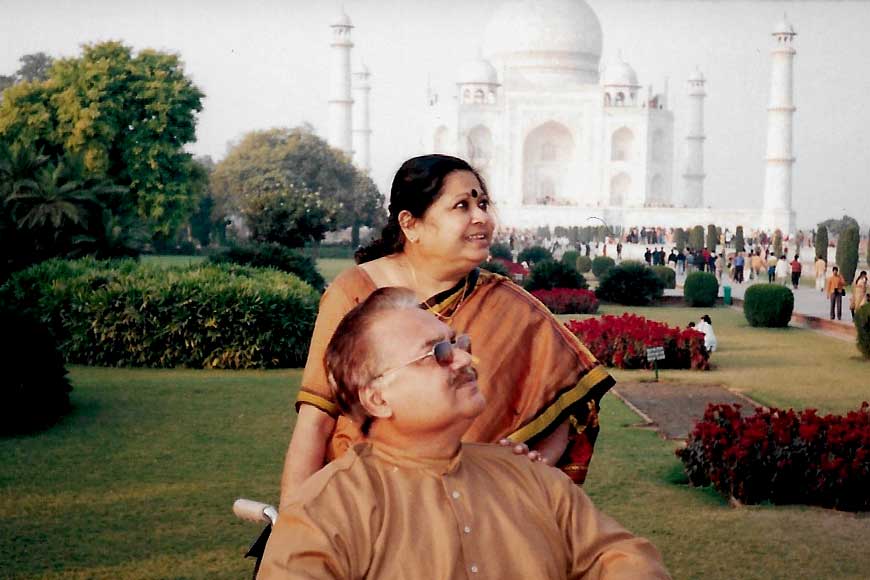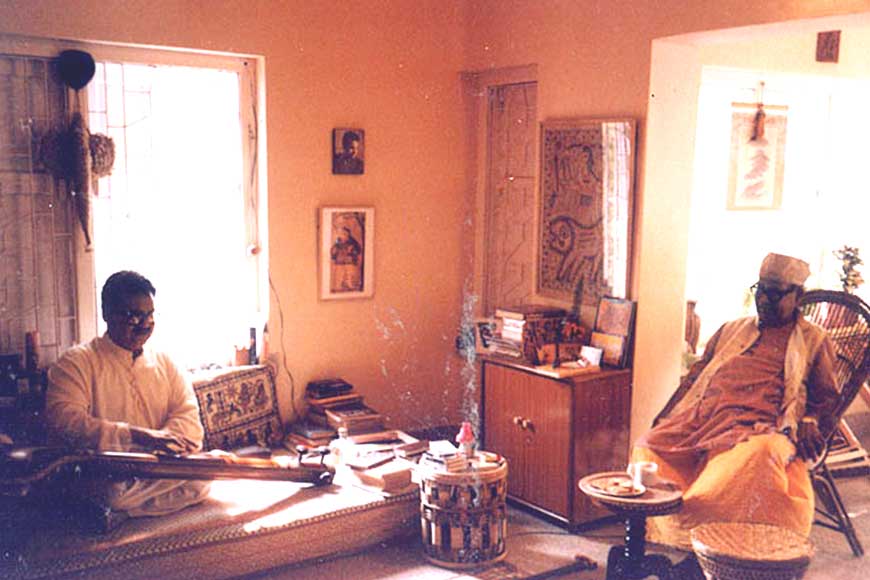Influencers in Rabindrasangeet exponent Mohan Singh’s life

The singing style (gayaki) of both Santidev Ghosh and Sailajaranjan Majumdar was similar to Dinu-Da’s (Rabindranath Thakur’s nephew, Dinendranath Thakur) style if rendition. Dinu-Da was a man who provided a proper form to Rabindranath’s compositions. Actually, Rabindranath was a genius who was in a perpetual haste to move on and give form to his creativity through myriad avenues and it was well neigh impossible to follow him in the lightning pace he advanced forward. Dinendranath could control the speed to some extent. Santidev Ghosh was Dinendranath Thakur’s pupil. Mohan Singh has always been an ardent admirer of Dinu-Da’s style of rendition and traces of the style can be discerned in Singh’s gayaki as well. “Many listeners opine that my style of singing is influenced by Santi Da’s style. But I tell them, I observed them from close quarters for 25 years before I started singing. I may have been influenced by them but that does not mean I copy their style. No definitely not.”
The music industry is mired in murky waters and hence there are hardly any recordings of Santidev Ghosh’s songs. It is a profound loss for the Indian music industry. Mohan Singh’s core subject is Indian classical music and he has composed more than 100 classical songs.
 Mohan Singh with Santidev Ghosh
Mohan Singh with Santidev Ghosh
Mohan Singh’s deceased wife, Suchismita, played a vital role in his life. He was never the quintessential ‘family man.’ He was never good at handling finance and would hand over all his earnings to her and depend on her to take care of everything. Suchismita stood beside him like a wall, supporting him with steadfast sincerity. She always protected him and never let him face the mundane and mediocre world of daily family problems and crises. Suchismita was instrumental in motivating Singh to explore the world of Rabindrasangeet. She also inspired him to create a number of songs.
Suchismita was a very dedicated homemaker, a devoted and caring wife and a loving and motivating mother for their two sons for instance when her elder son, Bikram went on long sojourns on his bicycle, criss-crossing the banks of Kopai, through Sonajhuri avenue or the Lal Bandh and would return home, bathed in sweat, dead tired. And soon enough, he would yell for his ‘Mom’ and ask her to fry two pieces of fish because he was ravenous. Suchismita would smilingly fulfill his demand. Impulsive that he was, Bikram would have sudden urges to gorge on ‘French toast’ in the middle of the night. During those times, Suchismita would dissuade him and instead she would prepare the dish for her ‘madcap’ son.
Mohan- Suchismita-Bikram-Abeer are like beaded flowers in one thread. Their very essence enveloped in the cloud of red laterite dust of Santiniketan, they are an integral part of Santiniketan. Mohan Singh is the archetypal sage who has dedicated himself to music. He continues his life-long mission and remains unruffled amid all the despondency that surrounds him. He prefers to continue his musical journey in isolation, far away from the glare of the limelight. He delves into his past and recapitulates his golden days spent in the company of stalwarts like Ustaadji, Sadhubaba, Dinendranath Tagore, Santidev Ghosh, Kanika Bandopadhyay and his childhood friend, Tuku (Ranadheer Roy). It gives him the succor to move on.
Transcribed from an original interview of Mohan Singh Khangura taken by Arpita Chatterjee










